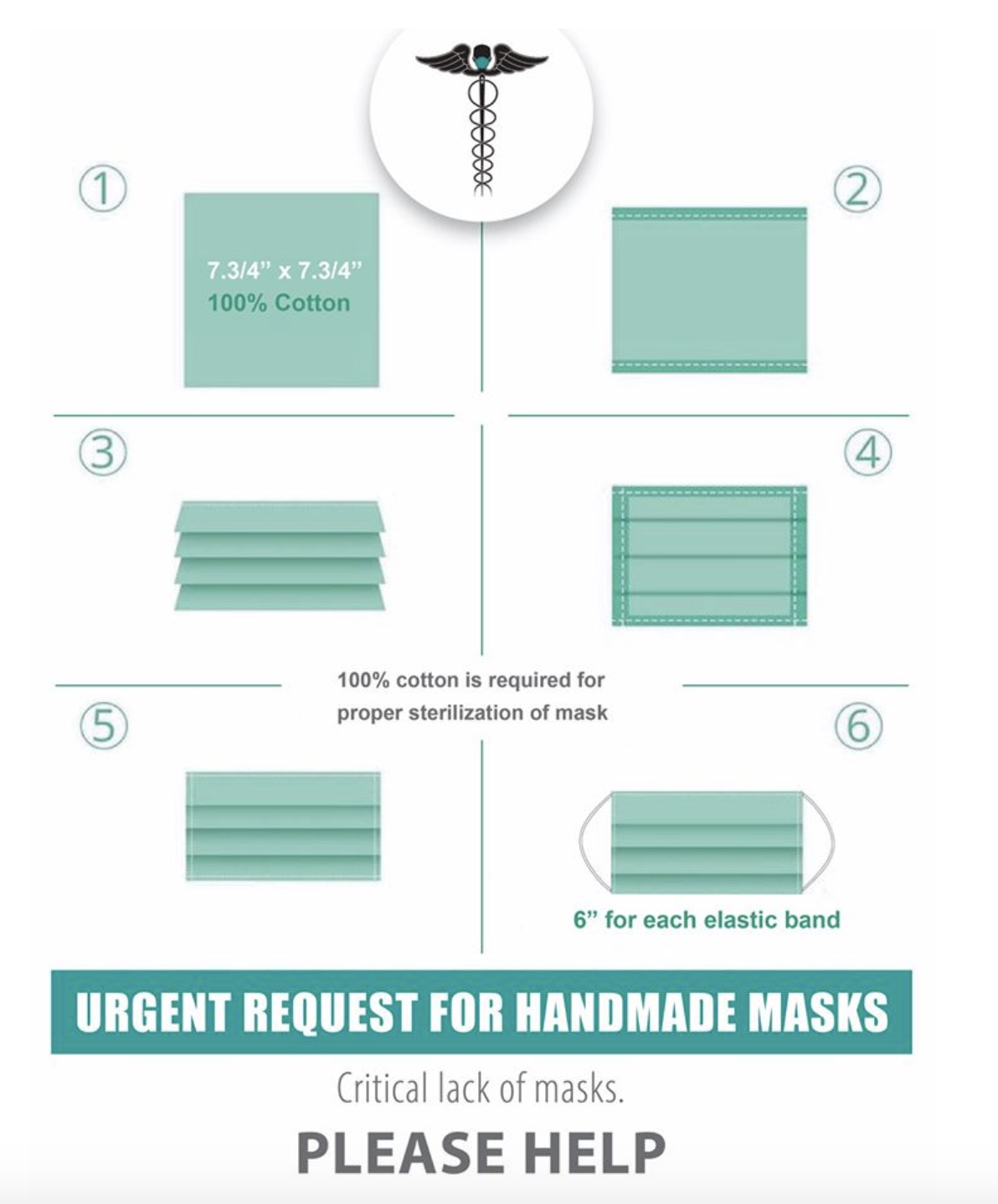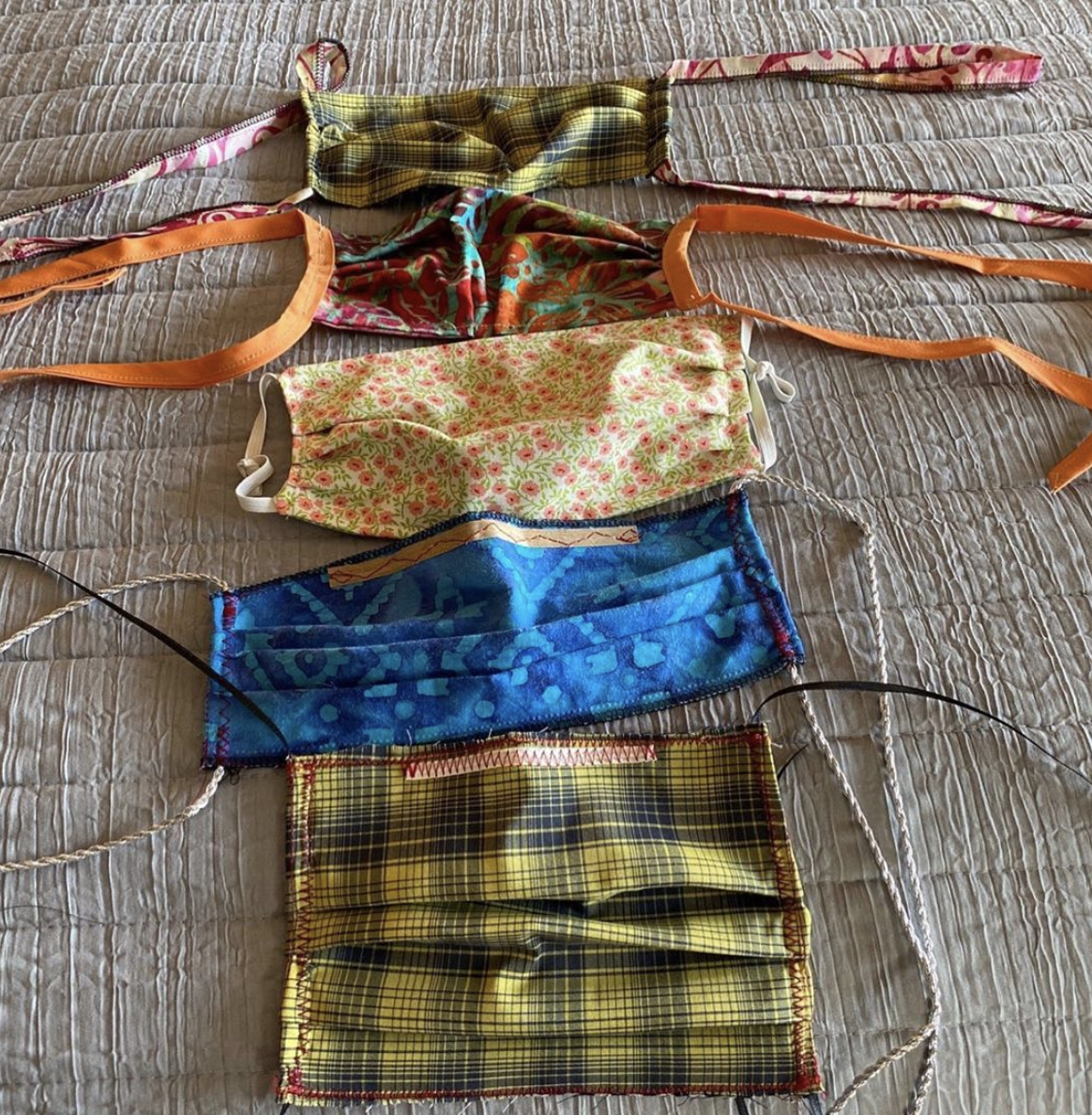Thanks to hawkish panic buyers devouring masks despite limited production, hospital staff who are truly in need of coronavirus protection are being forced to reuse masks over extended periods of time. Emily Farra, a senior writer for Vogue Magazine whose sister works as an intensive care unit nurse, expresses her anger over the absurd circumstances: “I can’t help but feel infuriated, seeing as my sister has been given one—one!—N95 to use over and over for the foreseeable future (the hospital recommended she store it in a paper bag between shifts).”
As coronavirus advances, social media accounts are uploading videos of exasperated doctors and nurses returning to empty grocery markets after hours of tireless care. Dawn Bilbrough, another intensive care nurse, broke down, saying “I’ve just finished 40 hours of work. I just wanted to get some stuff in for the next 48 hours… [but] people are just stripping the shelves of basic foods. You just need to stop it. Because people like me they’re gonna be looking after you when you are at your lowest.”
However, amidst the greed and manic behavior, there have also been positive movements designed to help hospitals overcome the lack of materials.
An organization called masks4medicine has reached out on social media asking fashion designers—or any skilled homemaker with access to a sewing machine—to donate DIY masks to hospitals in New York. Although USA Today reported that “that while the homemade alternatives can create a loose-fitting barrier that may mitigate the spread of some germs, they are not designed to block the spread of COVID-19.”
So, how would donating DIY masks help hospital staff? According to the masks4medicine Facebook page, fabric masks may be “allocated to low-risk workers in the hospital, which preserves the standard protective equipment for providers who need it most” or “[serve] as a protective cover for surgical masks which must be thrown away once they are soiled or wet.”
In short, these masks will be used for desperate measures when the most effective masks have run out (the ideal donation would be N95 masks, as they prevent coronavirus “inhalation” and “filter 95% of airborne particles”). Thus, when N95 masks are inaccessible, making masks at home will help save the main fighting forces of the coronavirus pandemic from low resources.
To explain how to actually make a mask, the masks4medicine has posted a whole instruction guide (including pictures) to aid the process. Furthermore, the brand Fly By Night has posted a simple step-by-step photo series on Instagram to help viewers.

Image Source: Facebook
https://www.instagram.com/p/B-A3PUlFmfd/
In terms of material, cotton is recommended. Dr. Michael Gibson, a medical professor at Harvard University, shared that two layers of dish towels or copper-infused t-shirts (“coronavirus can’t live on copper for more than a couple of hours”) may be the best materials in terms of filtering and breathability.
To provide some perspective, the New York Post published an article informing readers that “a vacuum cleaner bag was considered the most formidable household material with a rate of nearly 86 percent protection against the smallest particles tested. Falling behind was a standard dish towel at nearly 73 percent; a cotton-blend T-shirt at 70 percent; and an antimicrobial pillowcase at 68 percent.” Dr. Gibson further added the importance of correctly “fitting” masks across the face to avoid the virus from seeping through from the sides.
In a time of crisis, the main objective should be to help one another out, especially people in more vulnerable situations whilst remaining calm. There have already been hearty responses from designers who are eager to help the coronavirus pandemic: Christian Siriano unhesitatingly offered to produce masks, apparel company Hanes added mask production to their to-do list and fashion retailer Inditex announced a new focus on manufacturing medical supplies.
Nevertheless, more contributions are needed, as when hospitals are hurtled into urgent times, homemade fabric masks “would be better than no protection.” As a parting message to readers, Farra writes in her article, “Nurses and doctors can use all of the support they can get… so if you can find a way to help—whether it’s by donating, sending food, making masks, or simply sharing words of encouragement—please do.” With the helping-hand spirit, let us unite to help the coronavirus subside, as the virus is now a global epidemic affecting lives all around the world.
“None of us, including me, ever do great things. But we can all do small things, with great love, and together we can do something wonderful” – Mother Teresa
Featured Image via Instagram











